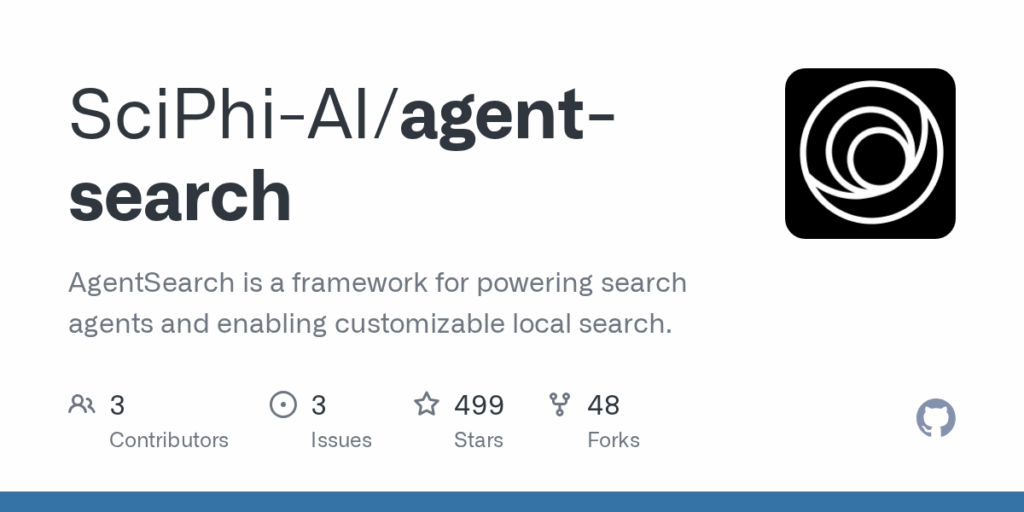agent search
Basic Information
AgentSearch is a developer-focused framework for building and running search agents that combine language models with web and local search engines. It enables Retrieval-Augmented Generation (RAG) workflows to summarize results, generate follow-up queries, and retrieve detailed downstream information. The repository provides a Python client, pre-configured search agent endpoints, and examples showing how to call methods such as search, completion, and get_search_rag_response. Installation is via pip and the client requires an API key in the environment. The project also supports deploying a customizable local search engine using the provided AgentSearch dataset. Documentation includes quickstart examples that demonstrate performing standalone searches, composing search contexts from returned result items, and enforcing structured outputs. Community support channels are mentioned and a user guide is planned.








